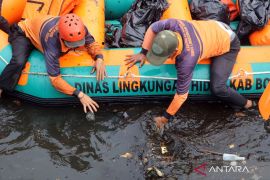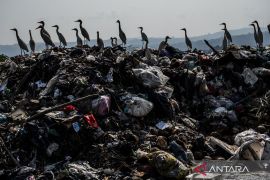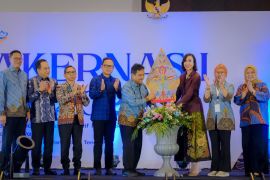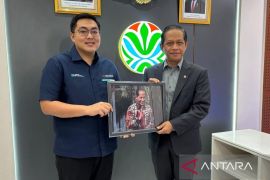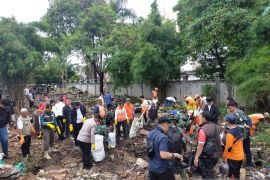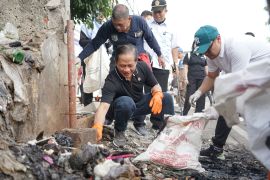“Our hope is that the waste can be managed in the respective schools, not taken outside,” he said after the “Environmental Generation Commitment Declaration” event, held as part of the North Jakarta Adiwiyata Program here on Tuesday.
Support for waste management is necessary, considering that North Jakarta has been designated a national model for waste management as part of efforts to achieve the target of 100 percent waste management by 2029.
He said that local waste management in areas, including schools, can help ease the waste burden, considering that Jakarta produces around 8 thousand tons of waste per day, which ends up piling up at the Bantargebang Landfill.
Related news: Environment Ministry calls for waste management in free meal program
According to the National Waste Management Information System (SIPSN), North Jakarta alone generated 1,396 tons of waste per day in 2024.
Food waste remains the biggest contributor to annual waste. In Jakarta, food waste accounted for 49.87 percent of the total waste of 3,171,247 tons recorded in 2024.
Minister Nurofiq informed that he will hold a discussion with the North Jakarta Mayor to encourage waste management at schools, after similar efforts at malls, markets, housing complexes, and other public areas.
In addition, the Ministry of Environment is also planning to monitor each location that could potentially generate waste to ensure the managers of each area handle its management properly.
As per the SIPSN, 34.2 million tons of waste was generated across Indonesia in 2024, based on reports from 319 districts and cities. Of the total, the volume of unmanaged waste reached 18.1 million tons.
Related news: Environment minister urges campuses to improve waste management
Translator: Prisca Triferna, Raka Adji
Editor: Rahmad Nasution
Copyright © ANTARA 2025

